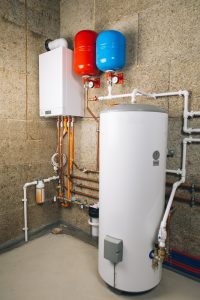Everyone loves hot showers, warm baths, clean clothes, and spotless dishes, right? Well, those are the things you can thank your water heater for. When it’s working at its best, you’ve got convenient access to all the warm or hot water you could need. However, forgetting regular maintenance could drastically reduce the expected lifetime of your hot water heater, which is usually 15 years.
There are a number of things you can do to keep your water heater at maximum efficiency and prolong the life of the unit. Here are a few to get you started!
Draining your hot water heater tank to keep it up and running
It’s recommended that you drain the water from your tank every year in order to clear it of debris and sediment build up. The process is fairly simple to follow and when you keep up with this bit of maintenance, you’ll actually notice your unit runs quieter.
Don’t forget about the sacrificial anode rod
If this is the first time you’re hearing about the sacrificial anode rod, you’re not alone. It sounds kind of funny at first, but once you realize what this simple tool can do to maintain your water heater, you’ll be a huge fan of them.
It’s common knowledge that water rusts metal, but few people ever think to question how or why their water heater doesn’t eventually output rusty water. The key to this involves a little rod installed into the tank’s top, called an anode rod or “sacrificial anode rod.” Even for tanks that are encased in a thin layer of glass, water getting into cracks is always a valid concern. This is where the anode rod comes in.
Anode rods are made up of magnesium or aluminum, both of which rust very quickly in water. Due to the “chemistry of rust,” the anode rod rusts faster than the metal tank, alleviating the potential of your tank rusting over time. Due to the nature of anode rods, they take the brunt of regular corrosion so your water heater continues to produce clean, clear water. Here’s a closer look at how and why these rods work:
The chemical reaction for rust starts by the metal yielding two electrons to the oxygen molecules in the water.
Because some metals give up electrons quicker than others (such as magnesium and aluminum), the corrosion process still occurs; but instead of the tank itself (usually made of iron or steel) giving up two electrons, they’re instead pulled from the anode rod. This is why the rod rusts, but your tank does not.
Examining your anode rod every two years is advised to ensure it’s replaced when it needs to be in order to maintain the quality and performance of the hot water heater itself.
Now that winter is upon us it’s a perfect time to make sure your hot water heater is running efficiently. If you need help keeping it maintained, contact Cocalico Plumbing & Heating today to keep the warm baths flowing!
